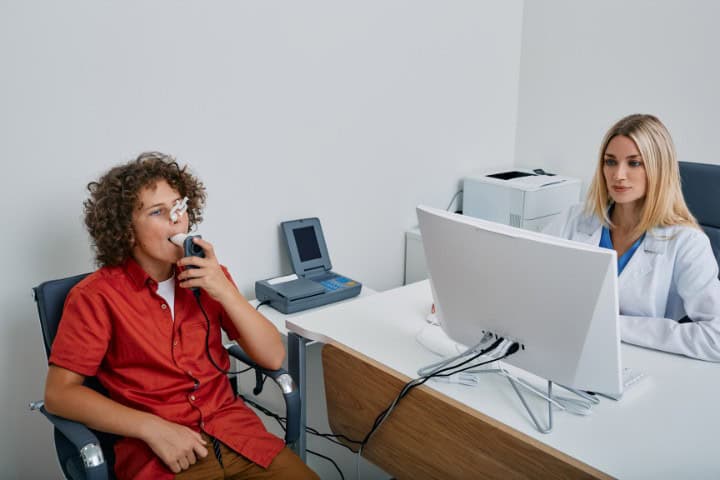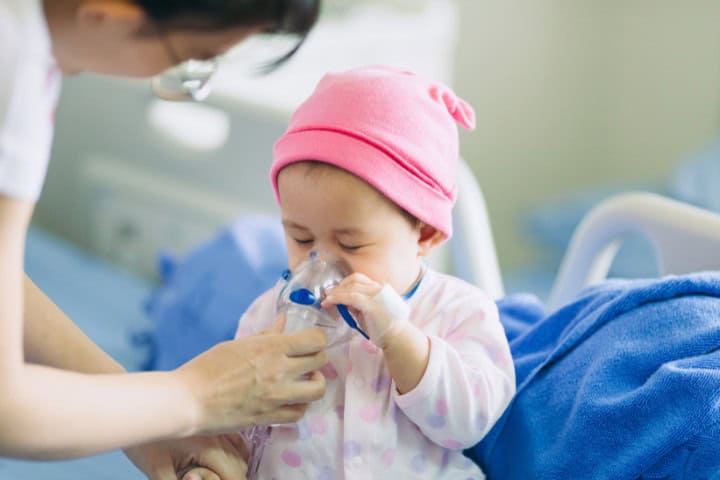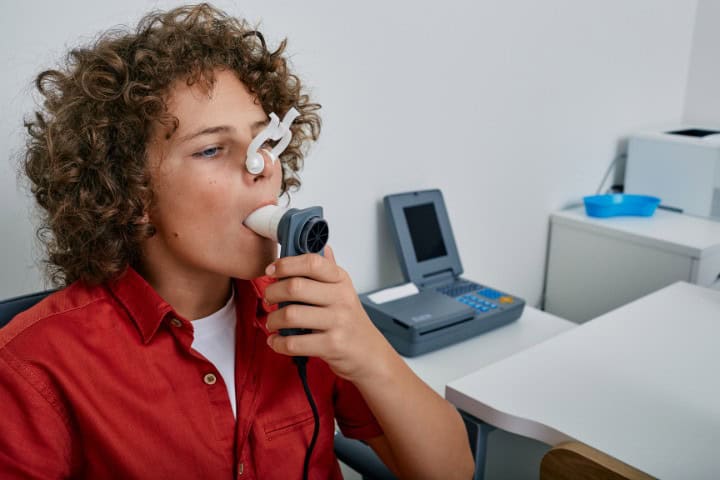
Pulmonary function testing (PFT) is an essential tool in pediatric healthcare, playing a critical role in assessing children’s respiratory health. This article will cover the nature of these tests, their necessity, and how they aid in the early diagnosis and management of respiratory conditions.
What is Pulmonary Function Testing?

PFT involves a series of non-invasive tests that measure how well the lungs take in and expel air and how efficiently they transfer oxygen into the blood. The primary components at Pediatric Associates of Dallas include spirometry.
Spirometry
This is the most common pulmonary function test and involves measuring the airflow and volume of air that can be inhaled and exhaled. It’s an effective way to assess conditions like asthma, which can cause narrowing of the airways.
Why is Pulmonary Function Testing Necessary?

At Pediatric Associates of Dallas, we emphasize the importance of PFT due to:
- Monitoring Disease Progression: For children diagnosed with chronic respiratory conditions, PFT is used periodically to monitor the disease progression and evaluate how well the current treatment is working.
The Pediatric Pulmonary Function Test Experience

PFT measures response to certain medications on the airway. By blowing into a device, it is able to measure the force and volume of air the child is able to breathe out. Results of these tests can vary based on the child’s ability to properly perform the PFT.
Undergoing PFT can be intimidating for children; however, at Pediatric Associates of Dallas, our goal is to ensure a comforting and supportive environment. The tests are explained in a child-friendly manner, and parents are allowed to be present to ease the child’s anxiety. Moreover, modern PFT equipment designed for children makes the process as comfortable as possible.
Preparing Your Child for Pulmonary Function Testing

Preparation can help minimize anxiety and ensure that the test results are accurate. Here are a few tips:
- Explain the Procedure: Use simple terms to explain what will happen during the test and why it’s being done.
- Follow Pre-test Instructions: Depending on the type of test, you may need to ensure your child avoids certain medications or foods before the test.
- Comfortable Clothing: Ensure your child wears loose, comfortable clothing to the test to facilitate easy breathing.
- Practice Sessions: Some clinics offer practice sessions with spirometers for children to get accustomed to the equipment.
Pulmonary function testing at Pediatric Associates of Dallas provides crucial insights that aid in the early diagnosis and effective management of respiratory conditions. Familiarizing yourself and your child with what to expect during PFT and preparing appropriately can help make the experience as positive and productive as possible. If you’re ready to schedule a pulmonary function test or have more questions, visit us at Pediatric Associates of Dallas.
